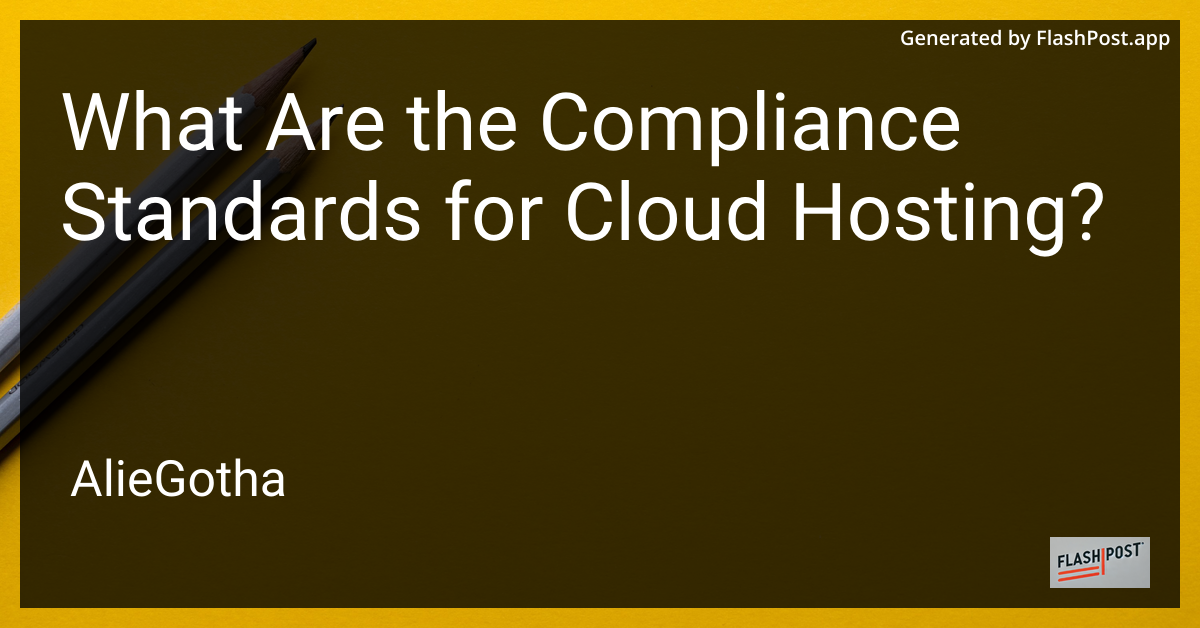

What Are the Compliance Standards for Cloud Hosting?
In the growing realm of cloud computing, staying informed about compliance standards is crucial for businesses leveraging cloud hosting services. Compliance is not just a regulatory necessity; it ensures that your data is managed securely and efficiently, adhering to industry-standard practices. In this article, we delve into various compliance standards related to cloud hosting and why they are essential for your operations.
Key Compliance Standards for Cloud Hosting
1. General Data Protection Regulation (GDPR)
The GDPR is a comprehensive data protection regulation enforced in the European Union. Even if your business is not based in Europe, adhering to GDPR is crucial if you’re handling EU citizens’ data. The regulation emphasizes transparency, data protection, and user consent. Cloud service providers (CSPs) must ensure data integrity, confidentiality, and accessibility as per GDPR requirements.
2. Payment Card Industry Data Security Standard (PCI DSS)
For businesses handling payment card transactions, PCI DSS compliance is vital. It includes stringent specifications for securing and processing card payments. Cloud hosting providers and their clients need to ensure that card holder data is stored, processed, and transmitted securely in line with PCI DSS standards.
3. Health Insurance Portability and Accountability Act (HIPAA)
HIPAA is particularly relevant for entities operating in the healthcare sector. It mandates the protection of sensitive patient information. Cloud hosting services used by healthcare providers must comply with HIPAA rules to safeguard electronic protected health information (ePHI).
4. ISO/IEC 27001
ISO/IEC 27001 is an international standard providing specifications for an effective information security management system (ISMS). Cloud providers certified in ISO/IEC 27001 demonstrate their commitment to continuous security improvement and risk management, fostering trust among users.
5. Federal Risk and Authorization Management Program (FedRAMP)
FedRAMP is designed for cloud services used by the U.S. federal government. It ensures that cloud hosting services meet stringent security standards to protect federal information systems. CSPs targeting government clients must achieve FedRAMP compliance to operate.
Why Compliance Standards Matter
Maintaining compliance with these standards is crucial for several reasons:
- Data Security: Compliance ensures that your data is handled and stored securely, reducing the risk of breaches.
- Legal Obligations: Meeting legal and regulatory requirements helps you avoid potential fines and legal troubles.
- Customer Trust: Demonstrating compliance builds trust with your clients, showcasing your commitment to protecting their information.
- Operational Efficiency: Adhering to standardized processes and protocols can improve operational efficiency and data management.
Further Guidance on Cloud Hosting
For more insights into cloud hosting, including deploying specific frameworks, consider exploring the following resources:
- Discover the process of cloud hosting for Symfony.
- Learn how to efficiently set up cloud hosting for your needs.
- Understand how to deploy CodeIgniter on cloud hosting.
Conclusion
Understanding and adhering to compliance standards for cloud hosting is indispensable for businesses today. By ensuring that your cloud solutions align with these standards, you not only fulfill legal obligations but also enhance your security posture and customer trust. As cloud technology evolves, staying informed about compliance requirements will remain a cornerstone of robust cloud hosting strategies.
